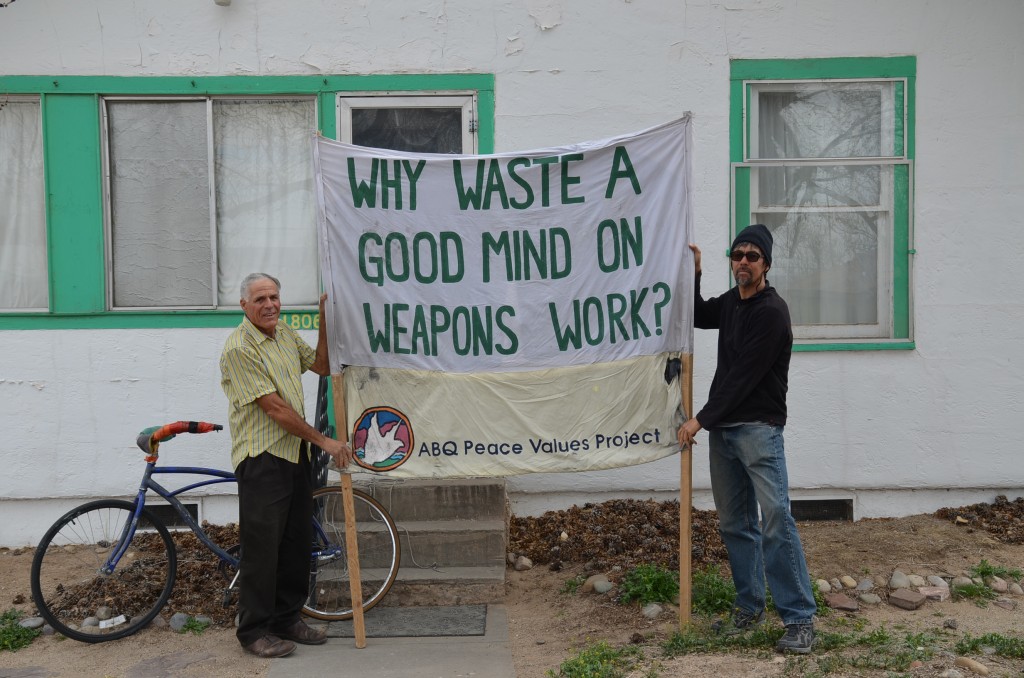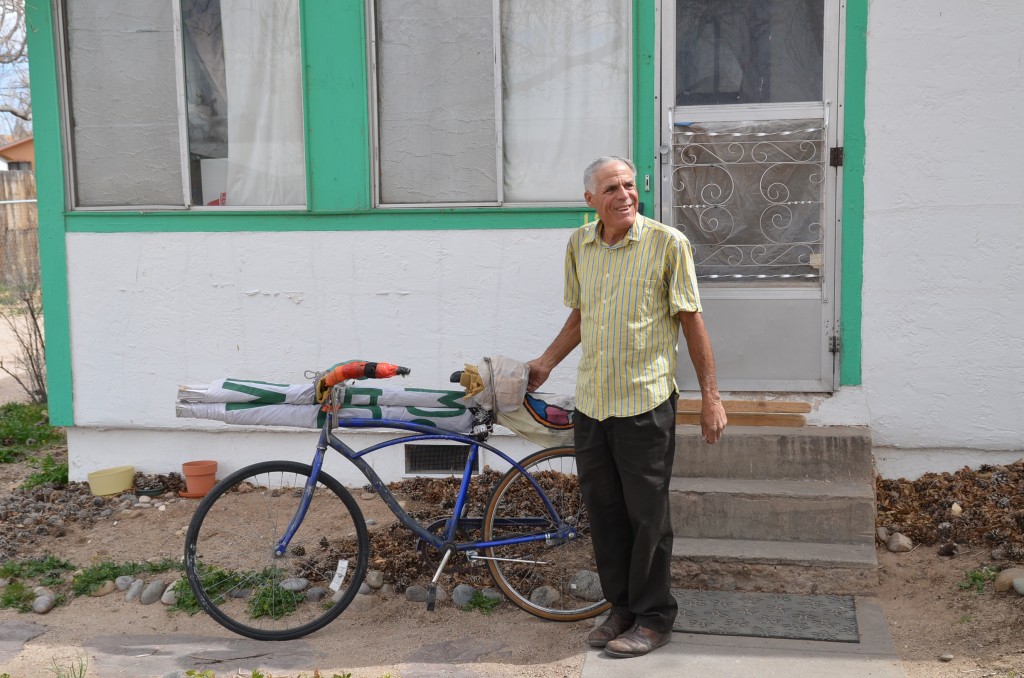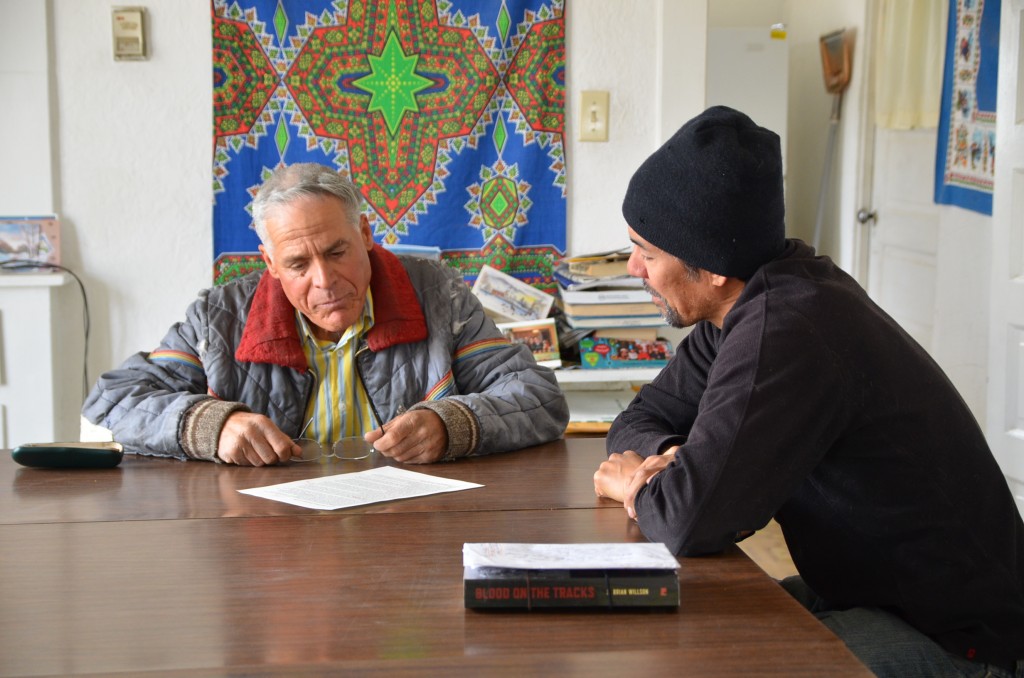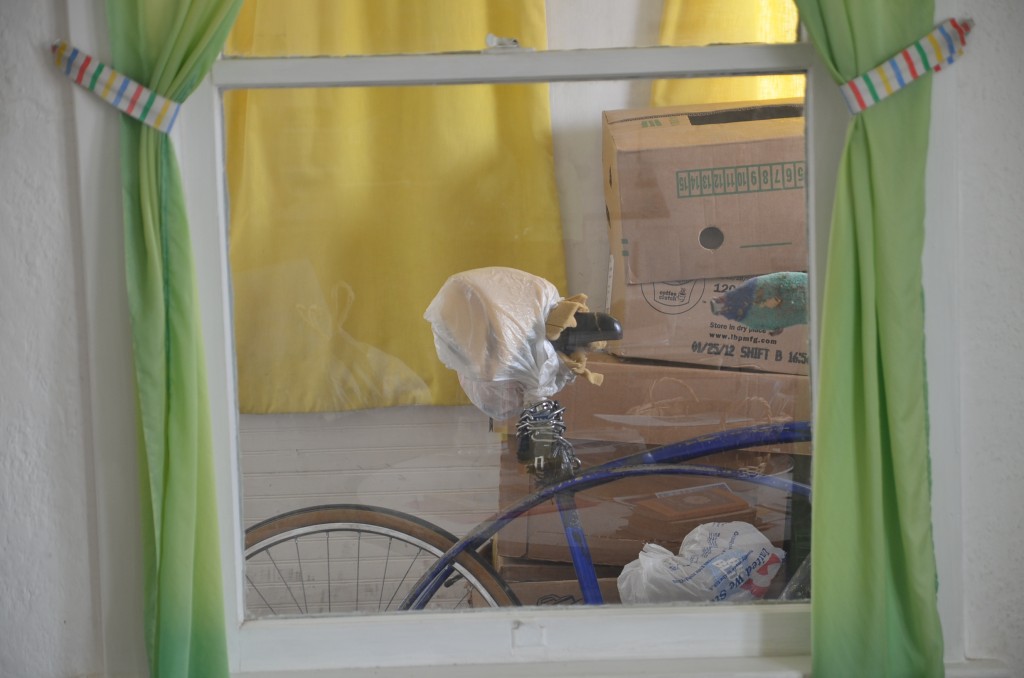REPRINTED FROM THE ALIBI
Chuck Hosking is an American marvel, as close to a homegrown prophet as you’re likely to come across. With his threadbare and patched clothes, riding around Albuquerque on a slipshod bicycle with a plastic bag seat, he remains happily committed to the true gospel.
For the last fifty years he has lived a life in defiance of our national character. Instead of being materialistic and acquisitive, he has pursued a life of minimalism and sharing. Instead of being xenophobic, he has sought to connect with other cultures. Instead of being strident and bellicose, he has pursued peace. Instead of embracing our addiction to television and computers, he has never owned either.
At the age of 14, he participated in his first Civil Rights march. It was Chicago, 1962. Groups of white detractors lined the route, taunting the marchers. He remembers the hatred in their faces. Instead of being cowed, he resolved to follow—truly follow—the compassionate teachings of his Christian upbringing.
His desire to better the world led to him to apply to the Episcopalian priesthood as a young man. At that time Vietnam was raging. When he expressed in his interview that the ministry should be at the forefront of the civil rights and anti-war movements, he was politely shown the door. This was the same time Martin Luther King was being ostracized by fellow clergy for speaking out against the war, enjoining the country to join together in protest: “If we do not act we shall surely be dragged down the long dark and shameful corridors of time reserved for those who possess power without compassion, might without morality, and strength without sight.”
The young Hosking chose action. He marched against the Vietnam War. He stood up and sat in for black student scholarships. When he received his draft card, he did not burn it. Instead, he tore it to pieces and sent the pieces to the draft board with his name and address. “I wanted them to understand my position in no uncertain terms. I was openly and adamantly non-compliant.” He began attending Quaker meetings. Several years later, in 1970, while teaching math at a Lower East Side alternative school in New York City, he met his life partner, Mary Ann Fiske. Married in 1971, they committed themselves to social justice and global equity.

Demonstrating in front of the Hosking residence in Southeast Albuquerque with one of Mary Ann's handpainted banners -Rebecca Belletto
After relocating to Albuquerque in 1982, Chuck and Mary Ann did everything possible to live their values of economy, conservation, love of others and sustainable living. For the next 25 years, until the death of Mary Ann in 2007, they subsisted contentedly on roughly $6000 a year, tending a robust garden, canning vegetables and practicing thrift. This was made possible in part by the purchase of their South Broadway home in 1984 for $20,000 in savings, which meant no mortgage. Any other income they earned over the years was donated to charitable organizations in developing countries. Given that their annual income remained below the taxable minimum, they have taken comfort in not funding war.
Chuck may be best known for the weekly vigils he has maintained at the gates of Kirtland Air Force Base dating back to Ash Wednesday, 1983. There, often alone, and buffeted by inclement weather, he has patiently held banners encouraging passing motorists to question their involvement with weapons research and development.
I am in awe of Chuck. Not only does he live his values, but he does so without arrogance, without narcissism, without spite, and without hostility.
For too many years I believed in the wrong religion and practiced the wrong faith. I believed in the religion of violence, the religion of superior firepower. I believed, narcissistically, we had the right to menace the world, spending half our tax dollars on weapons and weapons research and weapons training.
Now that I have a garden to tend, I am hopeful. Is not a soldier planting seeds a harbinger of peace?




“Is not a soldier planting seeds a harbinger of peace?”
Yes, it most certainly is. Keep sowing, brave friend, for surely you shall reap a bountiful harvest :)
Would our solders come back spiritually and psychologically broken if all deployments were humanitarian missions, providing aid, skills and education, in the event of extreme natural disasters, for example?
Tend our garden of the world, and it shall tend back.
Goooood!